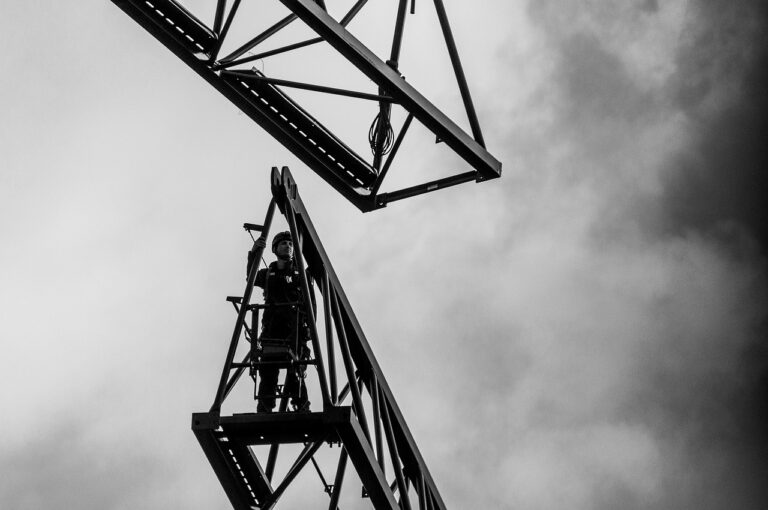In my 2017 post Artificial Intelligence – CPM Scheduling Algorithmic Optimizations and Machine Learning, I stated “By every indication, Artificial Intelligence project controls would appear to be for the use of planning architects and engineers, as opposed to building estimators and schedulers. This is an expected reflection of the industries and their inversely valued investment in technology, with the design industry at the head of the class, and builders stuck in analog.” I thought “what better time than now for a reassessment of AI CPM Construction Scheduling,” given the level of ‘smoke buildup,’ or AI hype currently trending digital media.
As, yet no AI CPM Construction scheduling platform has made any noticeable dent in the market share – assuming there is one. According to IBIS World:
“There are 306,509 CPM Services … in the US as of 2022 (IBIS World.),” and 23,456 CPM schedulers, or less than 7% of all CPM services. This number does not included general contractors and construction managers, of which there are 35,625 and 471,800 respectively. Thus, only 3% of these three entities combined (813,934) employ a construction scheduler, or 1:33.
Given the underutilization of CPM schedules in the industry, there simply aren’t enough operators or interested parties showing interest in the science, thus it is highly unlikely any start-up could stir up enough seed money to substantiate comprehensive AI CPM Construction Scheduling product development. Better to invest in training in existing platforms than in platforms that few people outside the developer understand.
Before there can be any serious interest in a generative-scheduling platform market, the industry’s cynical attitude towards scheduling needs to change. If only 1 in 33 GCs or CMs employ a scheduler (see above) we know that this is a dubious enterprise: typically a GC or CM won’t hire a full time scheduler unless it is a contractual requirement, and then only 25% of that subset hire a fulltime scheduler, preferring to have a project manager generate a front-end schedule. Otherwise, they simply eschew and forgo the expense altogether, which they deem superfluous.
Could design professionals, ownership, and other untrained schedulers avail themselves of generative-scheduling and eschew the need for trained schedulers?: Don’t hold your breath. If one’s untrained in CPM, there is little chance of a reliable schedule being generated by AI or otherwise. Trained schedulers would be best suited as AI-assist operators, and AI can’t function without them
However, the construction industry has been historically slow to adapt to new technologies that most other industries have long ago. Most of the industry doesn’t understand or utilize CPM schedules. Perhaps this also speaks to low productivity rate improvements as compared to most other industries. Whereas most industries have improved productivity rates, construction rates have gone pear-shaped.
According to the Becker Friedman Institute, University of Chicago:
“Despite aggregate productivity for the US economy having doubled over the past 50 years, the country’s construction sector has diverged considerably, trending downward throughout that period. And this is no slight decrease. Raw BEA data suggest that the value added per worker in the construction sector was about 40 percent lower in 2020 than in 1970 (see Figure 1 (BLS).”

CPM scheduling is not a new methodology, and neither are CPM platforms, yet only experienced schedulers seem to understand them beyond passing knowledge. Or want to understand them. Assuming most high level executives – or what I have called “Clueless Emperors,” do not have working knowledge operating CPM platforms, they tend to prefer executive briefs that cut to the chase sans technical narratives. They are, however, less clueless than other executives who make the mistake of micromanaging the schedule and scheduler, if for no other reason than to obfuscate their utter lack of CPM knowledge.
So when AI CPM Construction Scheduling engines started popping up several years ago, when AI was just beginning to mainstream – I was skeptical. Now that AI is beginning to disrupt many industries, I am still skeptical that now is the time for AI generative scheduling, as the technology has made no gains in the project controls market, or for that matter – construction – since I first wrote about it, in 2017.
AI CPM scheduling is based on the theory of generative-scheduling, which has the ability to plot all possible sequencing scenarios to a given sequence, and order them according to probability of success. Some of what AI platforms can do is already accessible in platforms such as Deltek’s Acumen Fuse, Risk, and Accelerator (360,) yet those platforms represent the smallest share of Deltek’s licenses.
In a 2022 post McKinsey related the following definition of generative scheduling:
“A generative-scheduling approach works by building a model that considers the physical and spatial constraints that govern how work needs to be done on-site. Once the model is created, structured problem solving is used to identify targeted “what if” questions about subjects including labor, equipment, installation rates, access, start-up sequence, and productivity. An advanced-analytics algorithm then produces hundreds of thousands of scenarios for how the work could be completed, and rapidly tests these scenarios to explore different options to generate a resource-loaded schedule that forecasts the costs and timing of the project, allowing project owners to select the option that best delivers their objectives. With a robust analysis in hand, project teams can work differently at every level of the project, making faster decisions and avoiding the pitfalls of simply reacting to deviations as they happen.”
From the above, it’s unclear where the prototype or foundation model is developed, or by whom: an operator or AI engine. Just like old fashioned manual scheduling any scenario can be no more valid than the baseline. If the baseline is modeled on shaky foundations, it won’t matter how many thousands of iterations AI considers, these scenarios will prove futile.
Some of my misgivings for the future for AI generative scheduling are already apparent in the shortcomings of current CPM modeling:
- absence of reliable baseline schedules
- absence of resource driven schedules
- failure to conduct inclusive risk-workshops and generate reliable risk models
- absence of key project members in creating the project baseline
- inability to bring qualified members to the scheduling team
- lack of investment in due diligence CPM scheduling personnel and equipment
Generative-scheduling could up the ante in the industry, but before it does that it needs reliable operators. It’s counterintuitive to consider an untrained CPM scheduler to operate an AI generative scheduling platform. Any successful AI CPM Construction Scheduling platform must be integrated with reliable human-interfaces (experienced schedulers.) We don’t need AI to generate schedules for us, only to help when asked. Not that it would matter. In other words, AI assists the user to generate work product, not the other way round. This is known as ‘semi-automation.’ If the human interface lacks training and knowledge, the implementation of an AI engine will be unlikely to improve flawed work plans.
Most baselines will never be formally approved by a seasoned oversight consultant – some schedule developers simply don’t have it in them. In other cases, a baseline is never approved, as the clock keeps ticking. From that point forward, they fail to meet contractual obligations and enhance a project’s risk profile in one turn. Yet the dearth of seasoned oversight consultants denotes that most approved CPM baselines are flawed and unrealistic, despite multiple review cycles. For this reason, very few compensable EOTs (5%) are ever remunerated, as they are predicated on faulty foundations (erroneous baselines.)
That said, the concept of AI generative scheduling also brings to mind the life-lesson that the industry must learn to walk before it can run: there is no jumping the shark of proper CPM schedule practice to AI generative scheduling because AI engines simply won’t have the tools or wherewithal to assist untrained or poor schedulers to make better work product. Only when there are enough trained schedulers in the industry to create technically and practically reliable schedules will AI have a comprehensive knowledge base to draw its various permutations from.
These knowledge bases need be project specific and draw from historical databases comprised of reliable schedules. Project specific includes risk assessments and schedule oversight – required knowledge that is available only in a tiny subset of all published schedules: if a baseline schedule foundations are based on a limited knowledge base and low project-logic integrity, it may be a moot point what AI can do to improve it.









